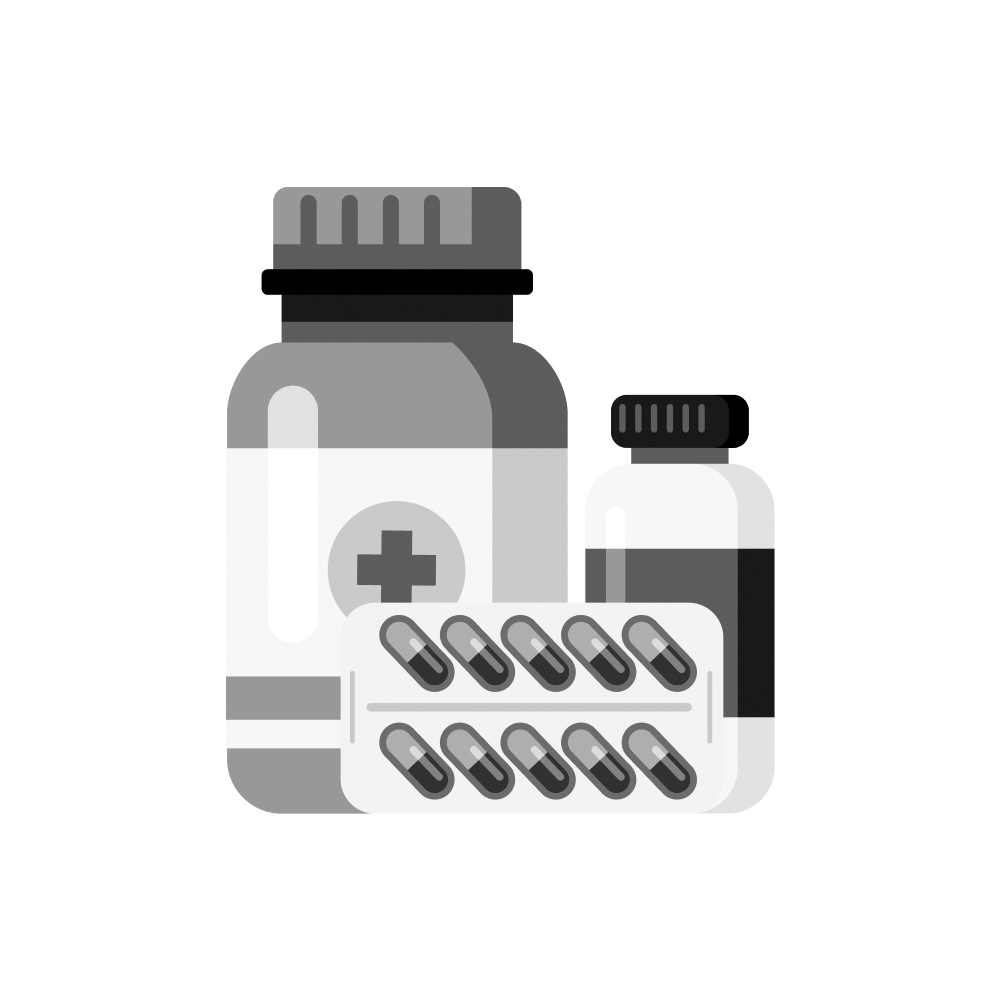

Out of stock
ব্যবসার জন্য পাইকারি দামে পণ্য কিনতে রেজিস্টেশন করুন
Register
Safety Advices
বাংলা
English
SAFE
Consuming alcohol with Gemifix does not cause any harmful side effects.
CONSULT YOUR DOCTOR
Gemifix is unsafe to use during pregnancy as there is definite evidence of risk to the developing baby. However, the doctor may rarely prescribe it in some life-threatening situations if the benefits are more than the potential risks. Please consult your doctor.
CAUTION
Gemifix should be used with caution during breastfeeding. Breastfeeding should be held until the treatment of the mother is completed and the drug is eliminated from her body.
UNSAFE
Gemifix may decrease alertness, affect your vision or make you feel sleepy and dizzy. Do not drive if these symptoms occur.
CAUTION
Gemifix should be used with caution in patients with kidney disease. Dose adjustment of Gemifix may be needed. Please consult your doctor.
SAFE IF PRESCRIBED
Gemifix is safe to use in patients with liver disease. No dose adjustment of Gemifix is recommended.
Medicine Overview of Gemifix 320mg Tablet
Introduction
Gemifix is an antibiotic, used in the treatment of bacterial infections. It is also used in treating infections of the urinary tract, nose, throat, skin and soft tissues and lungs (pneumonia). It cures the infection by stopping the further growth of the causative microorganisms. Gemifix should be used in the dose and duration as advised by your doctor. It may be taken with or without food, preferably at a fixed time. Avoid skipping any doses and finish the full course of treatment even if you feel better. Do not take a double dose to make up for a missed dose....
... Show moreUses of Gemifix
- Bacterial infections
Side effects of Gemifix
Common
- Rash
- Vomiting
- Headache
- Dizziness
- Stomach pain
- Nausea
- Diarrhea
How to use Gemifix
Take this medicine in the dose and duration as advised by your doctor. Swallow it as a whole. Do not chew, crush or break it. Gemifix may be taken with or without food, but it is better to take it at a fixed time.
How Gemifix works
Gemifix is an antibiotic. It works by stopping the action of a bacterial enzyme called DNA-gyrase. This prevents the bacterial cells from dividing and repairing, thereby killing them.
What if you forget to take Gemifix?
If you miss a dose of Gemifix, take it as soon as possible. However, if it is almost time for your next dose, skip the missed dose and go back to your regular schedule. Do not double the dose.
Quick Tips
- Your doctor has prescribed Gemifix to cure your infection and improve symptoms.
- Do not skip any doses and finish the full course of treatment even if you feel better.
- Discontinue Gemifix and inform your doctor immediately if you get a rash, itchy skin, swelling of face and mouth, or have difficulty in breathing.
- Diarrhea may occur as a side effect but should stop when your course is complete. Inform your doctor if it doesn't stop or if you find blood in your stools.
- Notify your doctor if you feel pain in your tendons, numbness, or tingling sensations.
- Inform your doctor if you are pregnant or planning to conceive or breastfeeding.
Brief Description
Indication
Chronic bronchitis, Community-acquired pneumonia
Administration
May be taken with or without food.
Adult Dose
Oral
Acute bacterial exacerbation of chronic bronchitis
Adult: 320 mg once daily for 5 days.
Community-acquired pneumonia
Adult: Mild to moderate: 320 mg once daily for 7 days.
Child Dose
Safety and efficacy not established
Renal Dose
Renal impairment:
CrCl (ml/min)
<40 (or patient on haemodialysis/CAPD) 160 mg once daily.
Contraindication
Hypersensitivity. Patients receiving class IA or III antiarrhythmics.
Mode of Action
The bactericidal action of gemifloxacin results from inhibition of the enzymes topoisomerase II (DNA gyrase) and topoisomerase IV, which are required for bacterial DNA replication, transcription, repair, and recombination.
Precaution
Patient w/ known or suspected CNS disorders (e.g. seizure disorders) or other risk factors predisposing to seizures, myasthenia gravis, previous tendon disorders (e.g. rheumatoid arthritis), history of QT interval prolongation, significant bradycardia or acute myocardial ischaemia, uncorrected electrolyte disorders. Kidney, heart or lung transplant recipients. Renal impairment. Pregnancy and lactation. Patient Counselling May impair ability to perform activities that require mental alertness or coordination (e.g. driving, operating machinery). Rest and refrain from doing strenuous physical activity as it may increase risk of tendon rupture. Avoid excessive exposure to sunlight or artificial UV light (e.g. tanning beds) and use protective measures...
... Show moreSide Effect
1-10%
Diarrhea (5%),Headache (4%),Nausea (4%),Rash (4%),Transaminases increased (1-4%),Abdominal pain (2%),Dizziness (2%),Vomiting (2%),Neutropenia (1%),Platelets increased (1%),Thrombocythemia (1%),GGT increased (1%)
<1%
Peripheral neuropathy,Photosensitivity,Tendon rupture
Interaction
Additive effect on QT interval prolongation w/ class IA (e.g. quinidine) or class III (e.g. amiodarone) antiarrhythmics and other drugs that prolong QT interval (e.g. erythromycin, TCAs, antipsychotic agents). Renal clearance reduced w/ probenecid. Decreased absorption w/ Al or Mg-containing antacids, buffered didanosine, sucralfate or dietary supplements containing metal cations (e.g. Zn, Mg, Fe).
Increased risk of severe tendon disorders esp in elderly (>60 yr) w/ corticosteroids. May increase prothrombin time, INR and/or bleeding w/ warfarin.
ব্যবসার জন্য পাইকারি দামে পণ্য কিনতে রেজিস্টেশন করুন
Register